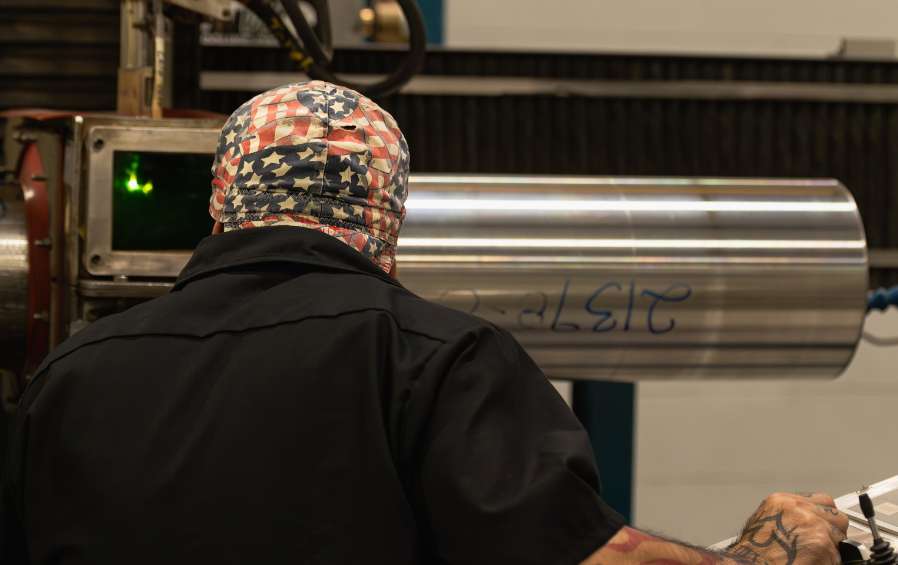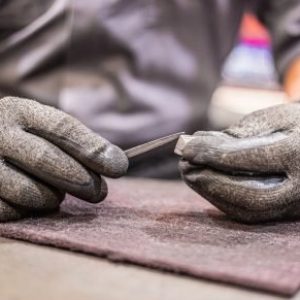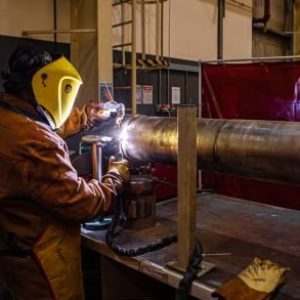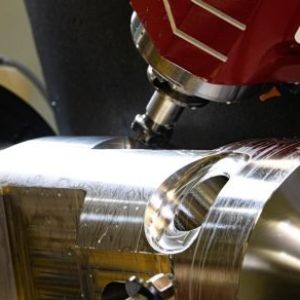The Impact of Robots in Machining for Oil and Gas
In the ever-evolving world of precision machining, the oil and gas industry is experiencing a significant transformation. Industry-leading companies like NTS Amega Global are spearheading tool and component innovation in this field, let’s delve into the realm of “Robots in Machining” and explore how this technology is reshaping the landscape.
Robots Are Redefining Precision Machining
Precision machining is a critical process in the oil and gas sector, where components need to meet exacting standards. The introduction of robots into this industry has brought about unprecedented levels of precision, efficiency, and safety.
Robotic machining systems are capable of executing intricate operations with high levels of consistency and repeatability. This means that complex components used in drilling tools, oil rig equipment, and downhole tools can be manufactured with greater precision than ever before. Moreover, the automation provided by robots significantly reduces the risk of errors and accidents.
Robotic process automation, or RPA, is a new technology with a wide range of applications. These robots can mimic human thought processes, speed up activities, and change corporate procedures.
Key Advantages of Robot-Assisted Precision Machining
Enhanced Efficiency: Robots can operate around the clock, reducing downtime and increasing productivity. Significantly, robots quickly adapt to various machining tasks, making them ideal for the oil and gas industry, where diverse components are required.
Consistency: Robots follow pre-programmed instructions meticulously, ensuring each component meets exact specifications. This consistency is vital for the safety and reliability of equipment used in challenging environments.
Cost Reduction: The initial investment in robotic systems can be substantial. However, the long-term cost savings are impressive. Robots can operate with minimal supervision, reducing labour costs and the need for overtime.
Safety: Robots can take on dangerous tasks, reducing the risk to human workers. This not only improves safety but also lowers insurance and liability costs.
Robots in Machining
Three examples of where robots in machining can be found:
1) Material Handling
Robots can handle a wide range of tools, from large tools to small prototypes, lowering the possibility of harm coming to human workers from dangerous tasks.
Designed for purpose, a multitude of functions can be completed by robots once they are assembled and programmed. These robots pick out individual pieces fast, palletize them, and pack them properly, this can increase your production with accuracy.
2) Welding
Joining metal components requires heat and pressure, which is a dangerous process that requires exact precision. The smallest welding mistake could cause significant injury, hinder the production process, and ruin the metal component. These reasons have led to a rise in the usage of robots for welding jobs.
3) Processing
Several processing steps, for example, cutting, polishing, or drilling, must be completed before a tool is finalised. Depending on the task’s complexity and the robot’s capabilities, several levels of autonomy can be used by robots to complete this work.
The Future
Experts are working on strategies to improve robot collaboration and end-to-end performance. Additionally, as AI advances, robots in the industrial sector are gathering data, assisting businesses in their decision-making process, and supporting them in the future.
Robots work more productively with humans to meet production demands reliably and flexibly. Robots reduce potential issues around durability and quality. Therefore, robots are without a doubt an exciting future trend for the industry.









